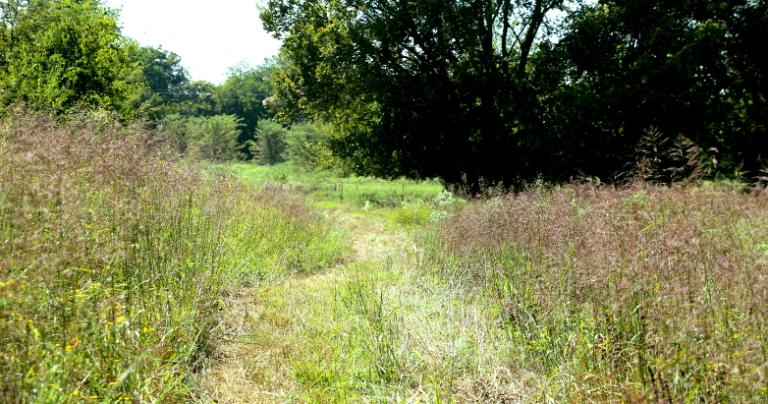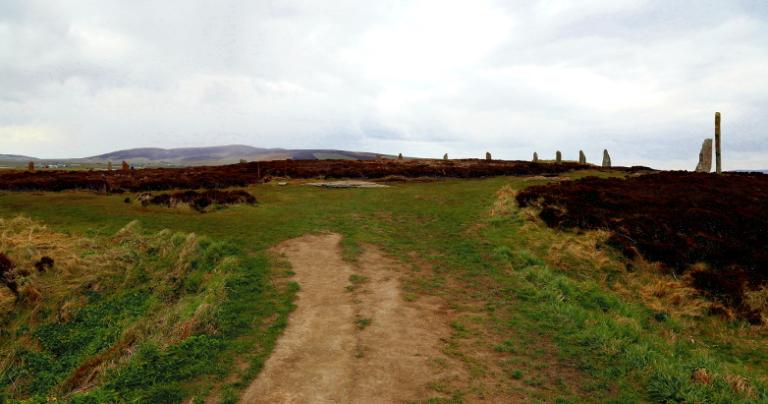I’m seeing a few “things I wish I’d known when I was a new Pagan” posts lately. I have mixed feelings about these posts. On one hand, they can be helpful to beginners who read them at just the right time. On the other hand, so much of our journeys are deeply personal and individualized – the problems I had may be very different from the ones you face. And many times we have to learn things the hard way because we refuse to listen to anyone else.
But a scan through my private journals from my early Pagan years turned up a nice list of things I know now that I really, really wish I’d known then. So, on the chance that you might be in the same situation, here are nine things I wish I’d known as a new Pagan.
1. You have to deal with your own issues first
I frequently complain about the psychologizing of Paganism, which is often done in an attempt to explain everything in materialist concepts. But another reason there’s so much psychology in Paganism is because so many Pagans are dealing with so many psychological issues. I certainly was when I was a new Pagan.
You don’t have to be a model of mental health to worship the Gods or to work magic. And a dedicated spiritual practice is a very good way to bring perspective and balance into your life.
But to develop a truly deep practice, you’ve got to get your act together. Deal with your own issues up front.
2. Examine your worldview mindfully
I’ve talked a lot lately about bad assumptions – things we’ve always been told are true that we don’t question. If your religion and spirituality are out of alignment with your foundational assumptions about the way the world works, you’re going to have problems.
From the mainstream society, I inherited the foundational assumptions of materialism, monotheism, and the primacy of the written word. It took a long time, but I eventually replaced them with animism, ancestors, relationships, and the primacy of experience. I replaced a Protestant worldview with a polytheist worldview, and my life has been much better because of it.
3. The path you start on may not be your true calling
I came into Paganism through Wicca, but it wasn’t until I found Druidry that things really took off for me. The problem was that it took me eight years to figure that out. In fairness, I really wanted to be a witch, so I can’t fault myself for staying on that path for too long. But I didn’t dive in deeply enough soon enough, and I didn’t recognize that there were more options than just Wicca.
4. If you don’t know what you want, expand your horizons
I’m often critical of people whose spirituality is a mile wide and an inch deep, but when you’re just starting out, casting a wide net is a smart move. I grew up knowing there were Baptists and Methodists and Catholics, and some other people practicing other religions, but I didn’t know a thing about any of the Pagan traditions. I had to learn that as an adult.
The internet and Amazon make this easier now, but it still requires an active search. Mainly, it requires understanding that you don’t know just how much you don’t know. If you don’t see what you need, look wider.
5. Dive deeply into what calls to you
I started exploring Wicca as soon as I discovered it. I read books, I bought tools and consecrated them, I started casting spells. I got enough results to convince me there was something to it (including one “don’t do this” lesson I remember to this day), but after a few months it would have been generous to call my practice “dabbling.”
Items 1 and 2 on this list were a big reason why: I needed to deal with my own issues, and I needed to change some unhelpful assumptions about the way the world works. That takes time. But it was my eventual deep dive that motivated me to address those concerns.
Dive deeply and see where it takes you.
6. There will be steps
When I found Druidry I thought “this is it!” Turns out just being a Druid wasn’t enough. When I joined OBOD I thought completing the Druid grade would be “it” – it wasn’t. I thought being a leader in a local Pagan group was “it.” It was a wonderful time of learning and service, but I gave that up last year.
I dislike the phrase “it’s a journey, not a destination” – it’s often used to rationalize aimless wandering. But this is a journey, and every time I reach a destination I find there’s another destination further down the road. I’m OK with that.
7. There is value in crossing a line
It’s one thing to pick up a book, a pentacle, or even a wand. It’s another thing to stand underneath the full moon and dedicate yourself to a path. It’s another thing still to take oaths to ancient Gods in the presence of witnesses.
My first group initiation was perhaps the most important step on the journey from there to here. The ritual itself was good, though far from life-changing. But when I made my oaths, and the priestess drew a sacred symbol on my forehead, I felt a change – and it felt right.
I’ve taken other oaths and stepped over other lines in the years since that first night. They all had the same kind of impact – they reinforced that this is real, this is important, and I’ve just made a promise and I need to keep it.
And I’ve never wanted to go back.
8. Ask for what you want
Just as there is power in stepping over a line, there is power in saying “I want this” – especially when it’s done with a full understanding of what acquiring / experiencing / becoming this requires.
Are you willing to do the necessary work? Are you willing to accept that saying “yes” to one choice means saying “no” to many other mutually exclusive choices? Are you willing to take responsibility for making use of whatever it is once you get it? In that context “I want this!” is a powerful statement.
Just asking rarely accomplishes much on its own (though sometimes it does). But asking begins a process that opens some doors, closes others, and makes you aware of doors that were there all along that you never saw.
If you want it, ask for it.
9. How you make a living and how you make a life are two different things
This doesn’t really match the other entries, but it was important to me.
One of the main reasons I didn’t dive deeply into my Pagan studies was that I realized I couldn’t make a living being a witch. I thought I needed to “follow my bliss” and nothing blissful would pay the bills, so my true calling just had to be somewhere else.
It wasn’t.
Being a Druid and a priest is my true calling. I make a pittance from my writing, so I pay the bills by working a “day job” as an engineer. Yes, that limits the time I can put into my spiritual work, and it severely limits any non-religious hobbies. But it works for me.
You will have to find your own balance, which may or may not look something like mine. But don’t fall into the trap of assuming how you make a living and how you make your life have to be the same thing.


















